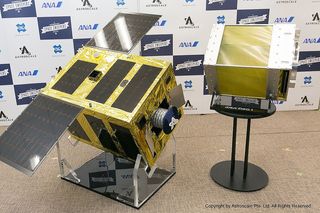Prior to you commit to renting out a dumpster, there are essential aspects you need to think about to prevent potential pitfalls and make sure an effective rental experience. From selecting straight from the source to following regional guidelines and adhering to garbage disposal guidelines, each action plays an essential duty in the process. By being notified and prepared, you can navigate the intricacies of dumpster rental with self-confidence and effectiveness.
Dumpster Dimension Option
When selecting a dumpster dimension, consider the volume of waste you need to deal with and the area available on your home. It's important to accurately approximate the amount of particles you'll be disposing of to guarantee you select a dumpster that can accommodate all of it. If you go with a size that's too tiny, you might end up needing several trips to the garbage dump or extra pick-ups, resulting in extra prices and trouble.
On the other hand, choosing a dumpster that's as well huge for your requirements can be a waste of cash and useful area on your building.
To figure out the ideal size, analyze the kind and quantity of products you'll be getting rid of. For small cleanouts or improvements, a 10-yard dumpster might suffice. For larger tasks like whole-home cleanouts or construction, you may need a 20 or 30-yard dumpster. By reviewing your waste quantity and offered space, you can select the ideal dumpster dimension to effectively handle your cleaning needs.
Resident Regulations Understanding
To make sure a smooth dumpster rental experience, it's vital to understand regional guidelines regulating garbage disposal in your location. Various cities and regions have specific guidelines relating to where and just how dumpsters can be placed, what products are allowed to be gotten rid of, and the required authorizations for putting a dumpster on your building or the street. Failure to comply with these policies can result in fines or various other fines, so it's vital to acquaint yourself with the regional requirements before scheduling a dumpster.
Some areas may have constraints on the sorts of products that can be dealt with in a dumpster, such as hazardous waste or electronics. Furthermore, there may be guidelines on the positioning of the dumpster, such as distance from property lines or ensuring it doesn't obstruct web traffic or accessibility to emergency solutions. Recognizing these guidelines ahead of time will help you avoid any kind of problems throughout your rental period and make certain a hassle-free experience.
Make certain to talk to your local waste monitoring authority or city authorities to get a clear understanding of the rules that put on your location.
Garbage Disposal Standards
Prior to you begin dealing with waste in the leased dumpster, it's vital to comply with particular standards to make certain correct and reliable disposal.
Initially, segregate your waste into groups such as recyclables, natural waste, and general trash. This will certainly make disposal much easier and a lot more environmentally friendly.
Be mindful of any type of dangerous products that are restricted from being disposed in the dumpster, such as chemicals, batteries, or electronic devices. These items need special disposal techniques to stop damage to the atmosphere and public health.
In addition, avoid overfilling the dumpster beyond its ability limitation, as this can present safety dangers during transport.
Recognize the weight restricts set by the rental firm and stay clear of exceeding them to prevent additional charges or difficulties.
mini dumpster rental
Since you know the essential ideas for renting out a dumpster, you can confidently reserve one for your job. Bear in mind to approximate the appropriate size, adhere to neighborhood guidelines, and follow garbage disposal guidelines to guarantee a smooth and economical experience. By being aggressive and informed, you can take advantage of your dumpster leasing and successfully handle your garbage disposal requirements.
